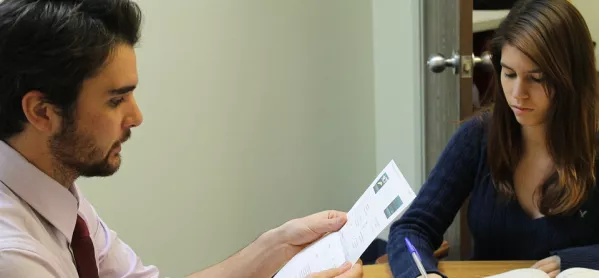Surveying tutors and pupils to find common interests - such as their favourite sporting events - could boost attendance at tutoring sessions, a study has found.
Research published by the Education Endowment Foundation (EEF) today looked at three different strategies to boost attendance within the Tuition Partners strand of the National Tutoring Programme (NTP) - in which outside tutoring providers run sessions for pupils.
As part of one of the strategies, pupils and tutors answered quick-fire questions about their personal interests, hobbies and values, such as which major sporting events they’d most like to attend or whether laughter, loyalty or listening was the most important trait for a friendship.
Once the surveys were completed, both tutors and pupils received instant feedback on their similarities, and tutors received regular reminders of their similarities with their pupils - including suggested conversation prompts.
Tutors then used teaching strategies that incorporated their pupils’ interests to help to build a positive relationship, and the researchers found that pupils who were selected to do the surveys had higher attendance than those who were not.
Improving attendance at NTP tutoring sessions
The researchers found that the survey approach increased attendance at sessions from 62 per cent to 66 per cent, but two other strategies did not appear to work in the same way.
In one of the other strategies, reminder messages for sessions were sent directly to pupils via email and in another, tutors completed a web-based activity focused on relationship-building strategies that could be used with pupils.
The research was carried out in the spring and summer term of 2021.
Professor Becky Francis, CEO of the EEF, said that it was “essential” that educators continued to learn about how to effectively engage pupils, in order to help the NTP achieve its aims.
“These important findings add to our understanding of how we can secure pupils’ ongoing participation in the programme, and, in turn, maximise its impact on learning in the wake of the pandemic”, she added.
David Halpern, CEO of the Behavioural Insights Team (BIT), which ran the testing, said that the trials had “practical and policy implications”.
“First, they demonstrate the importance of a tutor finding common areas of interest with the student they are teaching, and identify a simple, authentic and unobtrusive way of doing this. It’s a technique intuitively used by many effective tutors, but the trial shows how it can be used more widely,” he said.
“Second, these rapid BIT-EEF trials show how ‘marginal gains’ can be layered on top of existing interventions.”
Tes has previously reported on attendance issues at NTP sessions. In January we reported how tutors were faced with empty classrooms.
The Department for Education has repeatedly refused to release full information on attendance at sessions, arguing in February that it was “not in the public interest” to reveal it.




